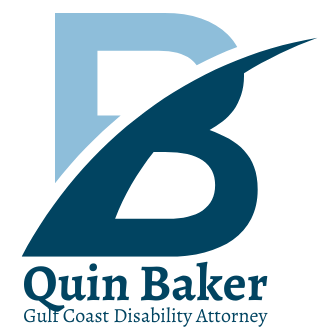How The SSA Blue Book is Used to Evaluate Impairments
The SSA Blue Book is a vital resource for assessing impairments and determining eligibility for disability benefits. It provides a structured framework that ensures consistent and fair evaluations of medical conditions. To increase the chances of a successful disability claim, you should work closely with a seasoned Pensacola, FL disability attorney who understands the complexities of the SSA’s evaluation process.
What is the SSA Blue Book?
The SSA Blue Book, officially titled the “Disability Evaluation Under Social Security,” is a comprehensive manual used by disability examiners and medical professionals to evaluate impairments. It’s divided into two parts: Part A for adults and Part B for children. Each part contains a list of impairments, also known as listings, categorized by body systems, such as musculoskeletal, respiratory, cardiovascular, or neurological.
Each impairment in the Blue Book has specific listing criteria that applicants need to meet to be considered disabled under SSA regulations. These criteria often include medical evidence, clinical findings, and functional limitations. To be eligible for benefits, your condition must match or equal the severity of a listed impairment.
Process of Evaluating Disability and Impairments Using SSA Blue Book in Pensacola, FL
Identifying the Relevant Listing
The first step in the evaluation process is to identify the listing or section in the SSA Blue Book that corresponds to your medical condition. The Blue Book is divided into different body systems and categories, each with its own specific listing for impairments.
Matching the Medical Condition
Once the relevant listing is identified, the next step is to determine whether your medical condition matches or equals the severity criteria outlined in the listing. This typically involves a comparison of medical evidence, clinical findings, and test results with the specific requirements detailed in the listing.
Medical Evidence
The SSA requires comprehensive medical evidence to support the applicant’s claim. This evidence includes medical records, clinical assessments, test results, and any imaging studies. Medical evidence should clearly establish the existence and severity of the impairment.
To be considered a qualifying disability, the impairment should be expected to last for at least 12 months or result in death. Temporary or short-term conditions do not meet this duration requirement.
Residual Functional Capacity (RFC)
If an applicant’s condition does not precisely match a Blue Book listing, the SSA assesses their residual functional capacity (RFC). An RFC evaluation examines the physical and mental capabilities, taking into account factors like strength, mobility, cognitive function, and other relevant abilities.
Compassionate Allowances
Some conditions are so severe that they automatically qualify an applicant for disability benefits under the Compassionate Allowances program. These conditions are typically life-threatening or debilitating, and the expedited process ensures faster approval for those who meet these criteria.
Non-Medical Criteria
While medical criteria are a primary focus, the SSA also considers non-medical factors in the evaluation process. These include the applicant’s age, education, work history, and transferable skills. These non-medical elements help the SSA determine an applicant’s ability to engage in substantial gainful activity (SGA).
Appeal Process
If the initial evaluation results in a denial of benefits, you have the option to appeal the decision. The appeal process may include a hearing before an administrative law judge, where additional evidence and arguments can be presented.
Role of Pensacola, FL Disability Attorneys in Obtaining Benefits
Skilled SSD attorneys can assess whether you meet the eligibility criteria for disability benefits. They can explain the specific requirements, such as the duration and severity of the disability and the work history prerequisites. They can also help you complete the application for disability benefits. Your lawyer will ensure that the application is thorough and accurately reflects your condition and limitations. Any mistakes or omissions in the application can lead to delays or denials, so attention to detail is necessary.
Physicians and specialists play a vital role in evaluating impairments and providing supporting documentation. Proven lawyers have access to these medical professionals. Their experience and clinical assessments contribute significantly to the disability determination process.
Applying for Benefits If Your Condition Is Not Listed in the Blue Book
Applying for disability benefits when your medical condition isn’t specifically listed in the Social Security Administration’s (SSA) Blue Book can be challenging, but it’s still possible. You should consult with a Pensacola, FL disability attorney who specializes in Social Security disability claims.
The SSA uses a set of “grid rules” to evaluate disability claims for people who don’t meet the specific listings in the Blue Book. These rules consider factors like age, education, work experience, and RFC to determine disability.
Your lawyer will help you get an RFC assessment that evaluates your physical and mental abilities and limitations. You may also want to collect all relevant medical records, clinical notes, test results, and treatment history related to your condition. The more detailed and thorough the evidence, the stronger your claim will be.
You can ask your treating physicians or specialists to provide written statements about your condition and how it affects your ability to work. These statements can carry significant weight in the evaluation process. If your claim is denied initially or after reconsideration, your disability attorney will help you go through the appeals process effectively.
Legal Help is Here from Reputable Disability Attorneys in Pensacola, FL
Quin Baker, SSD lawyer, has a proven track record of successfully representing clients and obtaining the benefits they rightfully deserve. He will help you gather and organize all relevant medical records, treatment history, and other essential documentation. To request a free consultation, call (850) 433-0888 or use our online form. You can also use our free online evaluation form to find out if you qualify for SSD benefits.





Leave a Reply
Want to join the discussion?Feel free to contribute!